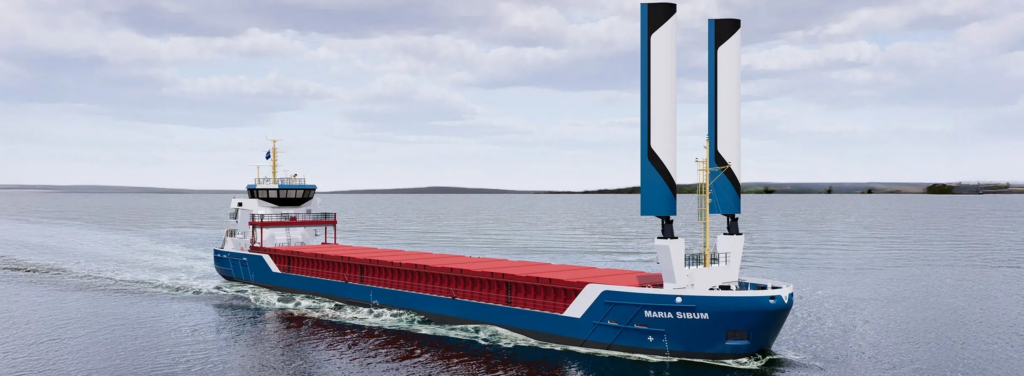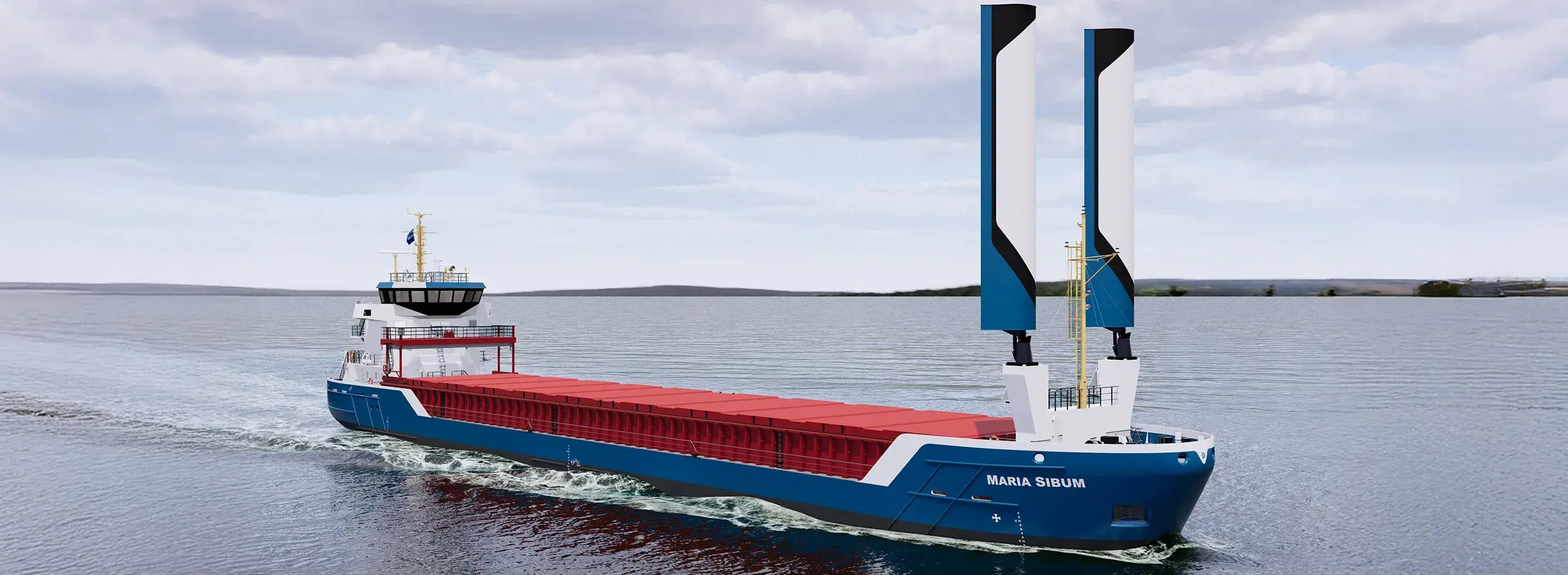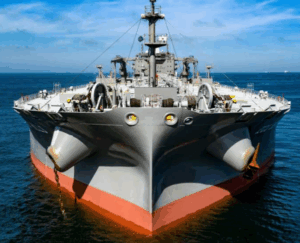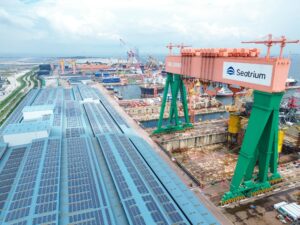
Reederei Bernd Sibum has received funding from the German government for investment in sustainable ship technology, according to the international shipyard group Damen. As a result, the four combi freighters (CF) 3850 that Damen is currently building for the company will be “green upgraded.”
The funding, known as NaMKü (Nachhaltige Modernisierung von Küstenschiffen/sustainable modernisation of coastal ships), is awarded by the federal ministry of digital affairs and transport (BMDV) with the aim of improving the efficiency and environmental footprint of short sea shipping.
It requires co-investment on behalf of the vessel owner.
“Reederei Sibum, with the support of the German government, are thinking beyond the present and preparing their fleet for the future,” said commercial director of Damen cargo vessels Remko Bouma.
Reederei Sibum placed the order for the four vessels in 2024.
The vessels, currently under construction at Damen Yichang Shipyard in China, were being built with the capability to sail 100% on biofuel, as well as with batteries for peak shaving and port operations.
They were also being prepared hybrid ready.
Damen said that the vessels, thanks to the NaMKü award, are being upgraded to sail on hybrid propulsion, with a PTO/PTI system. This upgrade provides the option of fully electric propulsion.
Another upgrade that the vessels will now receive is the installation of Econowind VentoFoils. This wind assisted ship propulsion solution is operated fully automatically to the prevailing wind conditions using intelligent technology.
The vessels will use their batteries while manoeuvring and for a short-term port stay. If the time in port is longer, they can switch from battery operation to shore power.
“The upgrade with extended shore power capacity will provide all electric systems on board with sufficient electric capacity,” Damen said in its statement.
Other features enabled by the NaMKü funding include installation of a heat recovery system, using heat from auxiliary engines that would otherwise be wasted, thereby eliminating gasoil consumption of the oil fired boiler while the vessel is in port.



